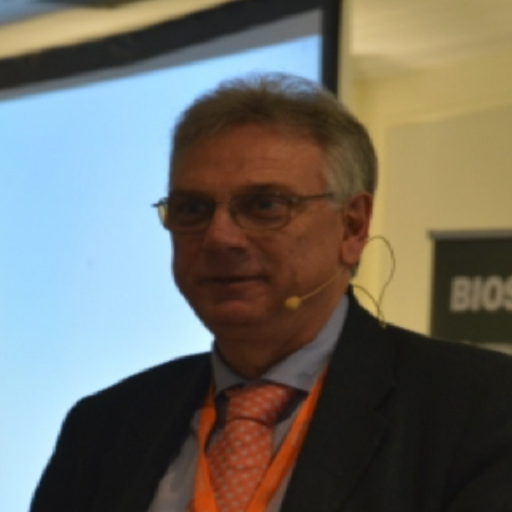Prof. Giovanni Saggio

Prof. Giovanni Saggio
Università degli Studi di Roma Tor Vergata, Italy
Title: Data-Driven Human Digital Twins
Abstract: The concept of Data-Driven Human Digital Twins (DD-HDTs)—virtual replicas of individuals
dynamically linked to real-time physiological, behavioral, and environmental data—represents a
transformative frontier for personalized health, human-computer interaction, and cyber-physical
systems.
A data-driven framework for creating and operating DD-HDTs relies on the integration of
multimodal sensors, machine learning, and computational modeling to capture, interpret, and
predict human states.
Different architectures can combine wearable and environmental sensors, biometric data streams,
and contextual analytics within electronic infrastructures to realize DD-HDTs. As such, DD-HDTs
can significantly support health monitoring, treatment outcomes, and early diagnosis in the medical
field, as well as ergonomic optimization in the industrial field and adaptive control in human-robot
collaboration, as a key technology for the next generation of intelligent, human-centric cyber-
physical ecosystems.
BIO: Giovanni Saggio has been among the "Top 2% Scientists" for six years (Stanford University
ranking, 2020-2025) and was named a "Distinguished Researcher" by the Institute for Systems
and Technologies of Information, Control, and Communication (INSTICC).
G.S. graduated in Electronic Engineering (1991), obtained the Ph.D. in Microelectronics and
Telecommunications (1996) and is currently Associate Professor of Electronics at the University of
Rome "Tor Vergata".
G.S. holds professorships in Electronics (basic and advanced) at the Faculties of Engineering and
Medicine of the University of Rome Tor Vergata. He has taught courses on "Wearable
Technologies" at the Hautes Écoles Spécialisées de Suisse occidentale (HES-SO), on "Business
Opportunities for Wearable Technology" at the Fribourg School of Management (HEG-FR),
Switzerland (2022-2023), on "Biomedical Signals" for TAIEX (Technical Assistance and Information
Exchange Facility of the European Commission) in Banja Luka, Bosnia and Herzegovina (2018).
G.S. coordinated the IDIH - International Collaboration Digital Transformation Healthy Aging -
expert group for the European Commission, with the involvement of Japan, South Korea, USA,
China and Canada, on the theme of “Preventive Care” (2020-2022), served as Scientific Advisor to
the Deputy Minister of Health during the COVID-19 period (2020-2022).
He is the author of numerous monographs and nine books in the field of electronics, and is a
featured author for CRC Press (with one book adopted by 16 universities worldwide). He is the
author/coauthor of over 200 publications, and serves as a thematic editor, guest editor, associate
editor, academic editor, and section committee member of numerous indexed journals.
G.S.'s research activity is particularly focused on (but not limited to) sensors, analog electronics,
and medical devices, with roles as proposer, principal investigator, and coordinator of scientific
projects for ASI, Armaereo, INAIL, and the Italian Ministry of Health.
Based on his discoveries, G.S. has filed 13 patents and founded the following three spin-offs:
Captiks Srl (wearable devices for medical applications and sports activities, 2012); Seeti Srl
(telemedicine and remote control, 2015); Voicewise Srl (voice assessments for pathologies,
emotional states, and the effects of alcohol and drugs, 2019)